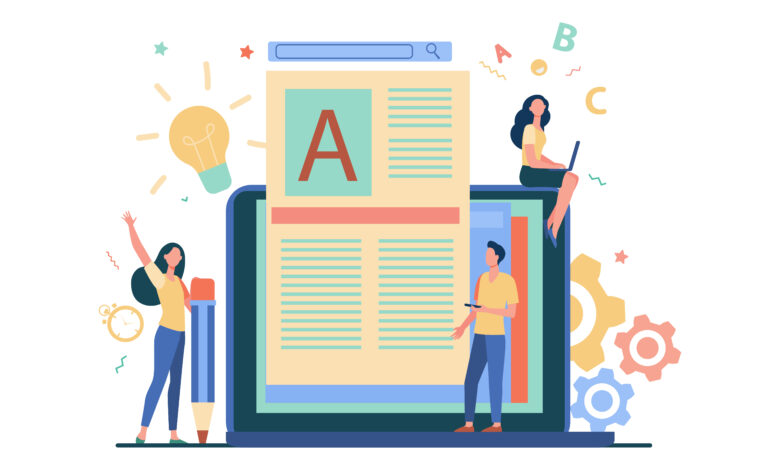The Importance of Professional Book Editing in Book Creating

Creating a book is a challenging and rewarding process. Whether you are an aspiring author or an established writer, the journey from drafting to publishing involves multiple stages. One of the most crucial steps in the book creating process is professional book editing. Many authors overlook or underestimate the value of a good editor, but having your book professionally edited can make the difference between a well-received book and one that gets lost in the crowd.
In this blog, we’ll explore why professional book editing is essential in book creating and how it contributes to producing a polished, engaging, and impactful final product.
1. What Is Book Creating?
Before diving into the importance of professional editing, let’s clarify what book creating actually means. Book creating refers to the process of conceptualizing, drafting, writing, revising, and ultimately producing a book. Whether it’s a novel, non-fiction work, or memoir, creating a book involves a series of carefully planned steps. These steps include:
- Idea Generation: Coming up with a concept for the book.
- Outlining and Structuring: Creating the backbone of the book, including plot structure, themes, and chapter organization.
- Writing the First Draft: Putting words on paper (or screen).
- Revising: Reviewing the draft and making necessary changes.
- Editing: Professional editing to refine and polish the content.
- Designing and Formatting: Getting the book ready for publication.
- Publishing and Marketing: Releasing the book to the public.
Each of these stages is critical, but professional editing is one that often goes unnoticed or unappreciated.
2. Why Is Professional Book Editing Crucial?
a) First Impressions Matter
In the world of publishing, the first impression of your book can make or break its success. A professionally edited book enhances readability and credibility, helping you capture and hold your audience’s attention. Professional book editing ensures that readers are not distracted by grammar mistakes, awkward sentence structures, or inconsistencies in the plot.
b) Polishing Your Voice and Style
Every author has a unique voice and style, and a good editor knows how to enhance this without altering the original tone. The purpose of editing is not to rewrite the book but to help clarify and refine the author’s voice. A professional editor works closely with you to ensure your message is communicated clearly while preserving your authenticity.
c) Ensuring Consistency
Consistency is one of the hallmarks of professional writing. In longer works like books, maintaining consistency across chapters, character development, and plot details can be challenging. Editors help authors ensure that characters stay true to their personalities, timelines remain intact, and small but essential details do not go overlooked. Consistency makes the book feel more cohesive and immersive.
d) Strengthening the Structure
Books, particularly long ones, need a well-thought-out structure to keep the reader engaged from beginning to end. Professional editors help analyze the flow of the book, suggesting reorganization of chapters or sections if needed. They can identify areas where the story slows down, where transitions are awkward, or where information is missing, ensuring the narrative or argument unfolds smoothly.
e) Correcting Grammar and Syntax
Typos, grammatical errors, and awkward syntax can pull readers out of the story. No matter how skilled a writer you are, it’s almost impossible to catch every error in your own work. Editors bring a fresh pair of eyes to your manuscript, spotting mistakes that you may have missed. This process goes beyond just correcting errors; it involves improving sentence structure, ensuring proper punctuation, and tightening prose to improve clarity.
3. Types of Editing in Book Creating
Professional book editing is not a one-size-fits-all process. There are different types of editing, each serving a unique purpose in book creating. Let’s break down these types:
a) Developmental Editing
Developmental editing focuses on the big-picture aspects of the book. This type of editing looks at the overall structure, plot, themes, and character development. A developmental editor helps ensure that your book is well-organized and that the story or argument is compelling and logically sound. They may suggest rearranging sections, cutting unnecessary content, or adding more depth to characters or ideas.
b) Line Editing
Line editing is a more detailed form of editing, focusing on the style, tone, and flow of the writing. Line editors help polish the prose, ensuring that sentences are well-constructed and that the author’s voice is consistent throughout the book. They help improve readability and engagement by refining word choice and sentence structure.
c) Copy Editing
Copy editing is the next step after line editing. Copy editors focus on grammar, spelling, punctuation, and consistency in style. This type of editing ensures that the manuscript adheres to a specific style guide and is free from technical errors.
d) Proofreading
Proofreading is the final stage of the editing process and involves a thorough review of the manuscript for any lingering errors, such as typos or formatting issues. Proofreaders ensure that the final version of the book is polished and ready for publication.
4. How Professional Editing Impacts the Book Creating Process
a) Elevating the Quality of Content
One of the most important ways professional editing impacts book creating is by elevating the overall quality of the content. Even the most creative and talented writers benefit from feedback and revision. An editor provides objective insights that improve the clarity, impact, and coherence of the writing, helping to take the manuscript from good to great.
b) Enhancing Readability
A well-edited book is easier to read and more enjoyable for the audience. Editors streamline awkward sentences, eliminate redundancies, and ensure that each chapter flows naturally into the next. They also help to remove unnecessary jargon or overly complex language that might confuse or alienate readers.
c) Boosting Marketability
In today’s competitive book market, a professionally edited book has a much higher chance of standing out. A polished manuscript looks more appealing to agents, publishers, and readers alike. Professional editing helps to ensure that your book meets industry standards, increasing its chances of being picked up by a publisher or performing well in self-publishing channels.
d) Building Credibility as an Author
As an author, your reputation depends on the quality of your work. A well-edited book demonstrates professionalism and attention to detail, which can help build your credibility and trust with readers. When readers encounter a polished, error-free book, they are more likely to trust you as an author and recommend your work to others.
5. Avoiding Common Pitfalls Without Professional Editing
a) Plot Holes and Inconsistencies
Without professional editing, it’s easy to overlook plot holes, character inconsistencies, or other narrative flaws. These issues can confuse readers and take them out of the story. An editor helps catch these problems early, allowing the author to fix them before they become major issues.
b) Redundancy and Repetition
Many authors tend to repeat the same information or themes throughout their books. While some repetition can be intentional, too much can bore readers and dilute the impact of the key message. Editors help identify areas of redundancy and suggest ways to streamline the content for maximum impact.
c) Unclear Messaging
In non-fiction books, clear and concise messaging is critical. Without professional editing, important ideas may be lost or overshadowed by poor organization or unclear writing. Editors ensure that the book’s key points are well-articulated and easy for readers to understand.
6. How to Find the Right Professional Editor for Your Book
a) Know Your Needs
Different books require different types of editing, so it’s important to know what stage your manuscript is in and what type of editing you need. If you’re unsure, consult with potential editors to get their feedback on which services would benefit your book the most.
b) Look for Experience in Your Genre
Not all editors are suited to all types of books. Make sure to find an editor who has experience working in your specific genre or field. This ensures that they understand the conventions, tone, and audience expectations for your book.
c) Review Samples and Testimonials
Before committing to an editor, review samples of their work and check client testimonials. A good editor will be happy to provide references or show examples of previously edited books.
d) Communication and Collaboration
A successful book editing experience relies on good communication between the author and editor. Make sure the editor is willing to collaborate with you and respect your vision for the book while offering constructive feedback.
7. The Long-Term Benefits of Professional Editing in Book Creating
a) Increased Sales and Positive Reviews
Books that have been professionally edited are more likely to receive positive reviews from readers and critics. Positive reviews lead to increased sales, as word-of-mouth marketing plays a big role in a book’s success.
b) Lifelong Writing Improvement
Working with a professional editor can improve your writing skills in the long term. By receiving detailed feedback and learning from the edits made, authors can apply these lessons to future writing projects, becoming more skilled and polished writers.
c) Professional Growth as an Author
Authors who take the time to invest in professional editing are seen as more serious and professional in the publishing world. This can lead to more opportunities, whether it’s securing a publishing deal, building a fanbase, or creating partnerships with other professionals in the industry.
Conclusion
In the process of book creating, professional book editing is an essential step that cannot be skipped or overlooked. It enhances the quality, readability, and marketability of the book, ensuring that it is polished and ready for readers. By investing in a professional editor, you elevate your work, improve your writing, and increase your chances of success in the competitive world of publishing.





